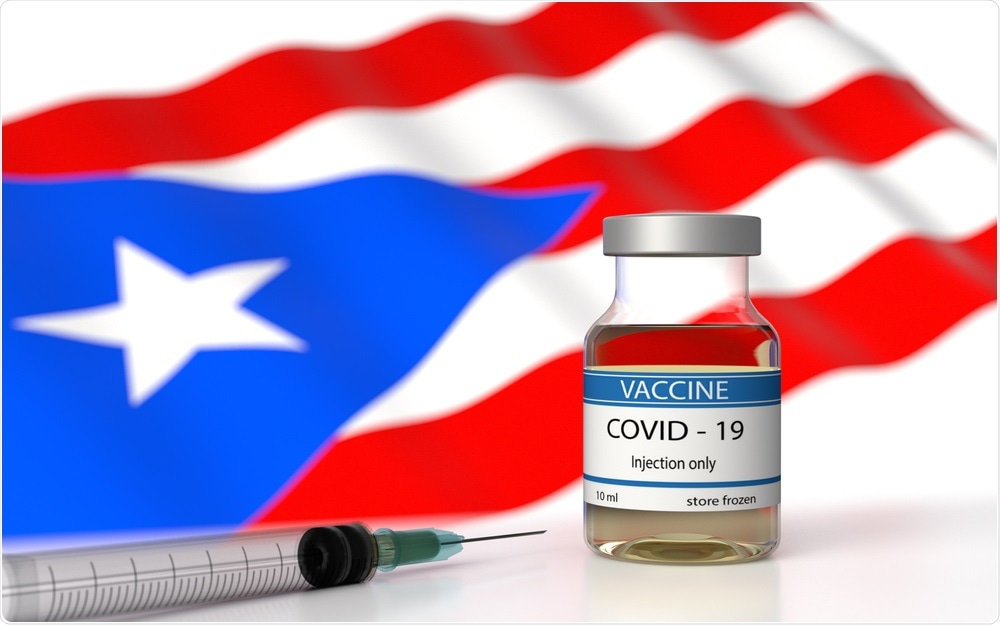Since coronavirus disease 2019 (COVID-19) vaccines were first administered across the world, the effectiveness of these vaccines in many different countries has been studied. In-patient, observational, and population-based studies in the United States have compared the effectiveness of the Moderna mRNA-1273, Pfizer-BioNTech BNT162b2, and Johnson & Johnson Ad26.COV2.S vaccines against hospitalization and death after the emergence of variants of concern.
However, many of these studies were not adjusted for parameters such as age and real-world estimates of the mRNA-1273, BNT162b2, and Ad26.COV2.S. Therefore, estimates regarding the efficacy of these vaccines against infections, hospitalizations, and deaths are limited.
 Study: Time-varying effectiveness of the mrNA-1273, BNT162b2 and Ad26-COV2.S vaccines against SARS-CoV-2 infections and COVID-19 hospitalizations and deaths: an analysis based on observational data from Puerto Rico. Image Credit: OrpheusFX / Shutterstock.com
Study: Time-varying effectiveness of the mrNA-1273, BNT162b2 and Ad26-COV2.S vaccines against SARS-CoV-2 infections and COVID-19 hospitalizations and deaths: an analysis based on observational data from Puerto Rico. Image Credit: OrpheusFX / Shutterstock.com
Effectiveness of COVID-19 vaccines on SARS-CoV-2 infections in Puerto Rico
In a recent study published on the preprint server medRxiv*, researchers from the U.S. examined the vaccine effectiveness against severe acute respiratory syndrome coronavirus 2 (SARS-CoV-2) infections in Puerto Rico since COVID-19 vaccination started. The researchers collected data on hospitalization, death, and vaccination status for 111,052 lab-confirmed SARS-CoV-2 infections in Puerto Rico after the administration of the first dose of the COVID-19 vaccine between December 15, 2020, and October 1, 2021.
With the help of the data collected, the researchers estimated the real-world, time-varying effectiveness of the BNT162b2 (Pfizer), mRNA-1273 (Moderna), and Ad26.COV2.S (Johnson & Johnson) COVID-19 vaccines to assess the public health benefits of Puerto Rico’s vaccination campaign. They also compared the effectiveness of the vaccines before and after the dominance of the Delta variant. At the time of the study, Puerto Rico had a higher vaccination rate and lower SARS-CoV-2 infection rate than all 50 states in the U.S.
The researchers integrated data on SARS-CoV-2 test results, vaccination status, as well as COVID-19 hospitalizations and deaths obtained from the Puerto Rico Department of Health databases. Time-varying vaccine effectiveness against SARS-CoV-2 infections was estimated using a statistical model that adjusts for time-varying incidence rates, gender, age, and day of the week. This model was also used to determine and compare the risk of hospitalization and deaths between vaccinated to unvaccinated individuals.
All vaccines lowered the risk of infection, hospitalization, and death
The results showed that all the vaccines used in the study were effective at reducing risks of infection, hospitalization, and death across all age groups. At peak protection, mRNA-1273, BNT162b2, and Ad26.COV2.S had 90% (88% – 91%), 87% (85% – 89%), and 58% (51% – 65%) effectiveness.
Effectiveness waned to nearly 70%, 60%, and 30% for the mRNA-1273, BNT162b2, and Ad26.COV2.S vaccines, respectively, after four months. While all vaccines had lower effectiveness in elderly people over 85 years, this reduction was particularly low for the Ad26.COV2.S vaccine.
Vaccine effectiveness appears unchanged during the Delta phase
There was no clear evidence to show that the effectiveness of vaccines was different after the Delta variant became dominant. For infected individuals across all age groups, vaccines provided added protection against hospitalization and death, although those above 85 years were less protected.
While the rates observed in unvaccinated individuals were nearly 6,273 and 2,096 for hospitalizations and deaths, respectively, those among the vaccinated population were 744 and 167 for hospitalizations and deaths, respectively.
“It is important to note that this study is observational based on real world data and not a randomized clinical trial.”
Ad26.COV2.S vaccine was less effective compared to the other vaccines
In conclusion, the findings of the current study clearly demonstrate that the mRNA-1273 and BNT162b2 vaccines were highly effective at reducing risks across all age groups. The Ad26.COV2.S vaccine was effective to a lesser degree as compared to the other vaccines, especially in older age groups.
While the effectiveness of all vaccines waned after 4 months, the mRNA-1273 vaccine was still 71% effective, whereas the effectiveness of Ad26.COV2.S dropped to 27%. According to the authors, these findings agree with general trends seen in clinical trials.
“Our analyses clearly demonstrates that all vaccines were effective at reducing risks of infection, hospitalization and death across all age groups, with the protection provided by the and mRNA-1273 and BNT162b2 vaccine particularly strong.”
*Important notice
medRxiv publishes preliminary scientific reports that are not peer-reviewed and, therefore, should not be regarded as conclusive, guide clinical practice/health-related behavior, or treated as established information.
- Robles-Fontan, M. M., Nieves, E. G., Cardona-Gerena, I., & Irizarry, R. A. (2021). Time-varying effectiveness of the mRNA-1273, BNT162b2 and Ad26-COV2.S vaccines against SARS-CoV-2 infections and COVID-19 hospitalizations and deaths: an analysis based on observational data from Puerto Rico. medRxiv. doi:10.1101/2021.10.17.21265101. https://www.medrxiv.org/content/10.1101/2021.10.17.21265101v2
Posted in: Medical Science News | Medical Research News | Medical Condition News | Disease/Infection News | Pharmaceutical News
Tags: Clinical Trial, Coronavirus, Coronavirus Disease COVID-19, Efficacy, Public Health, Respiratory, SARS, SARS-CoV-2, Severe Acute Respiratory, Severe Acute Respiratory Syndrome, Syndrome, Vaccine

Written by
Susha Cheriyedath
Susha has a Bachelor of Science (B.Sc.) degree in Chemistry and Master of Science (M.Sc) degree in Biochemistry from the University of Calicut, India. She always had a keen interest in medical and health science. As part of her masters degree, she specialized in Biochemistry, with an emphasis on Microbiology, Physiology, Biotechnology, and Nutrition. In her spare time, she loves to cook up a storm in the kitchen with her super-messy baking experiments.
Source: Read Full Article
